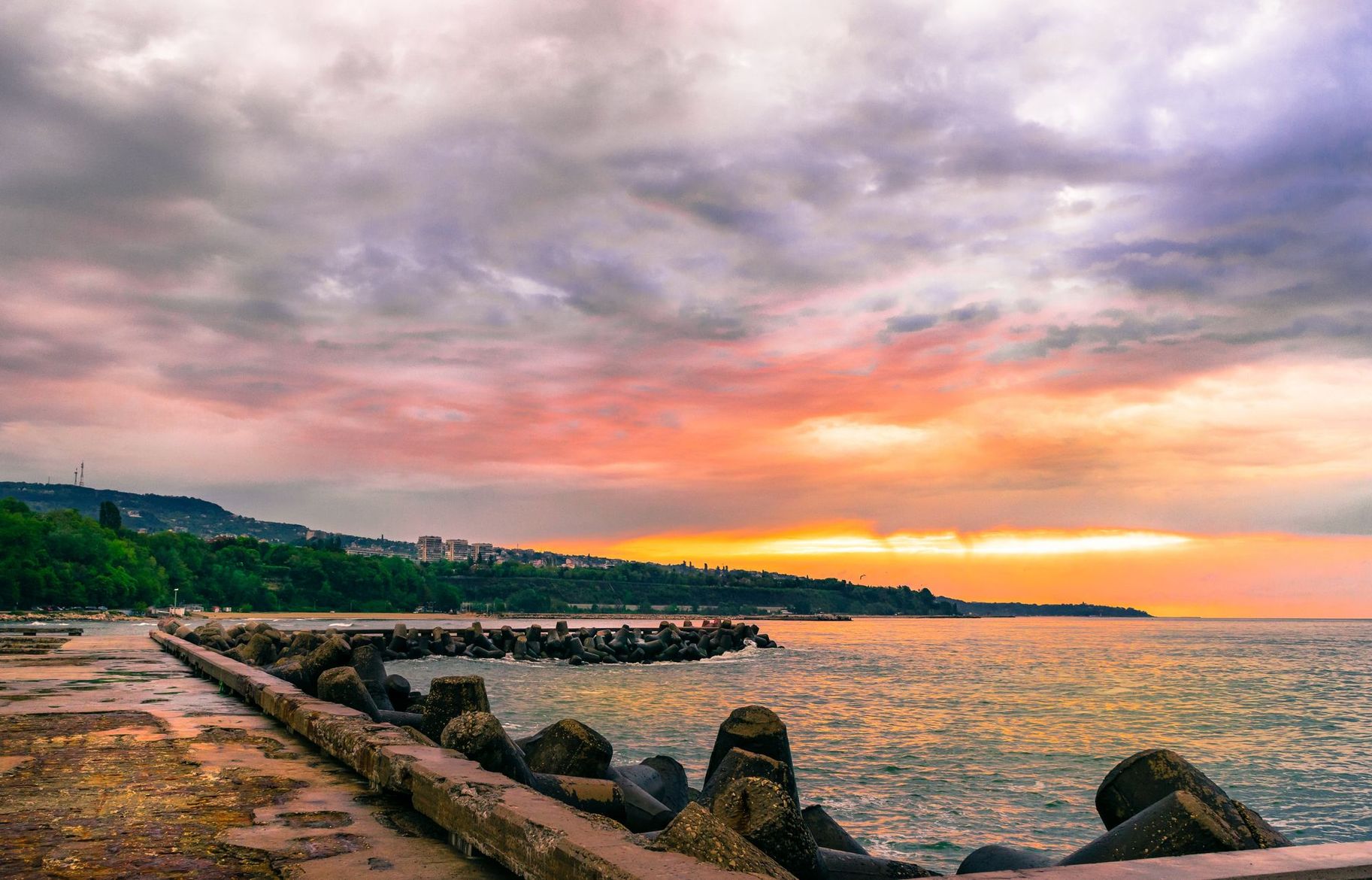Top 3 Cities Bulgaria
Bulgaria
People tend to associate Bulgaria with beach and party holidays. The Balkan state has been a member of the European Union since 2007 and has plenty more to offer that deserves a closer look. Bulgaria has made immense progress over recent years and entices visitors with affordable deals. The reason: Bulgaria has the third-lowest average wage in the EU, which keeps spending to a minimum at all the visited locations. The local currency is called the lev.
With around 6.9 million inhabitants, the country is not too big and still offers lots of variety. Your wishes are sure to be fulfilled, whether it’s a sun-kissed beach holiday, hiking in the numerous mountains, visiting religious sites, discovering the rich historical heritage or sampling local delicacies. The country on the eastern fringes of the EU has a rich culture that has absorbed many external influences over the course of its history.
This article provides a brief summary of our Favourite 3 Bulgarien Cities that are certain to delight all travellers.
Good to know
- German, Austrian and Swiss nationals may enter the country with an identity card or passport and do not require a visa. But you must expect your identification to be checked on arrival.
- Official language: Bulgarian
- Bulgarian bureaux de change are among Europe’s biggest tourist traps, so keep a close eye on the exchange rate.
- Most common religions: Bulgarian Orthodox, Muslim, Protestant, Roman Catholic
- The best time for a beach holiday is between June and late September. Top destinations are on the Black Sea, where the average temperature is 27̊ Celsius.
- City trips are recommended between April and October, when average temperatures will be around 15° Celsius.
- People in Bulgaria nod to say ‘no’ and shake their heads when they mean ‘yes’.
- The Cyrillic alphabet originated in Bulgaria.
Top 3 Cities
Sofia
Sofia is the beautiful capital of the Balkan state of Bulgaria and is situated at the foot of Mount Vitosha in the west of the country. Among the most notable landmarks are the Alexander Nevsky Cathedral in the centre of the city and the famous St. Sophia Church. Around a fifth of Bulgaria’s population lives in Sofia.
Sofia stands on the ruins of the ancient city of Serdica, making it particularly attractive to fans of Ancient Rome. But even those who are less keen on a culturally educational trip will find plenty to do in Sofia. Besides its ancient buildings, it is astonishingly varied and boasts the right ingredients for a fun-filled holiday lifestyle.
Vitosha Boulevard is the city’s most prominent shopping street and, in addition to numerous opportunities to browse the stores, is home to plenty of culinary temptations in the local restaurants and market stalls. More sporty holidaymakers will also be happy in this city: situated just outside, the Vitosha Mountains are the ideal opportunity to escape the hustle and bustle and enjoy a few contemplative moments in nature. Less athletic sorts needn’t worry, either: A cable car connects the city to the mountain summits.

Rila Monastery is also a great place for a day trip. Listed as a UNESCO World Heritage Site, its murals are among the country’s most remarkable sights.
Visitors will also find things to do in the evening that are perfectly suited to their personal tastes: Whether it’s a stylish stroll to a late performance at the Ivan Vazov National Theatre or a fun evening in one of the many bars along the boulevard.
Summary: Regardless of your interests and intentions for visiting the city, you will not be disappointed and are certain to discover plenty of opportunities for a wide range of activities.
Plovdiv
Built on seven hills like ancient Rome, Bulgaria’s second largest city Plovdiv looks back on a history of more than 8,000 years, making it the oldest continuously populated city in Europe. It is located on the Maritsa River, just south from the centre of the country of seven million inhabitants.
The artistic capital, it is home to richly illustrated cultures and religions. Its population could not be more diverse: Muslims, Armenians, Jews, Greeks and Roma have lived among the Bulgarian Orthodox majority for centuries.
With its lovingly restored houses, Roman ruins, intersecting cobbled streets and delightful cafés, a stroll through the historic old town is an absolute must. Visitors will vividly sense the cultural city’s rich past and multifaceted life.

The Roman stadium of Philippopolis should also feature on the itinerary of any excursion. Sadly, only remnants of the city’s Central Stadium can now be explored. But with a little imagination, visitors will have no trouble picturing the 30,000 or so frenetic spectators in ancient times and will themselves drawn in by this richly historical city’s engaging atmosphere.
The Ancient Theatre is the right place to go if you want to see more than fragments of the past. It was built under Emperor Trajan in around 116 AD and remains a venue for all kinds of events in the city almost 2,000 years later.
Highlight: The annual Opera Open festival is held during the summer months, attracting prestigious artists from all over the world and all genres to a single location. Here as well, the city remains true to itself, offering space to celebrate its highly diverse population.
Summary: The city is perfect for history buffs and cultural enthusiasts.
Varna
Anyone searching for a relaxing beach holiday should look no further than Varna, the principal city on Bulgaria’s Black Sea coast. The port city on the Black Sea has become one of the most popular destinations for leisure and treatment. Just a short distance from the Gold Beach, the city has some idyllic districts to offer. But it tends to become swamped in the summer months, mainly by holidaymakers looking to maximise their beverage intake – usually the alcoholic variety.

“So near and yet so far” is the motto here. Whether to relax or to party is a personal decision – and both options are definitely possible.
Like its predecessors, Varna has more to offer than initially meets the eye. Historic architecture, the Royal Mansion, majestic cathedrals, fascinating museums, splendid parks – there are so many unique places worth visiting.
The city is also known for the golden treasure of Varna. The 6,000-year-old Thracian jewellery was discovered in a necropolis, which visitors can admire together with Greek, Roman and Ottoman artefacts in a local museum.
All age groups are represented at this location: Party animals, cultural enthusiasts and families will all get their money’s worth.
A Bulgarian word is the best tip for getting by in this city: “Cheers – Nasdrave”
Conclusion
Bulgaria has something for every conceivable type of holidaymaker! The prices for visiting the country are truly enticing, but must be viewed with caution. The Balkan state attracts visitors with a refreshing mix of city breaks, beach holidays, party life and sporting activities.
Have you been bitten by the travel bug and are itching to experience a new culture?
► Click here to book a digital vignette for your trip to Bulgaria.
